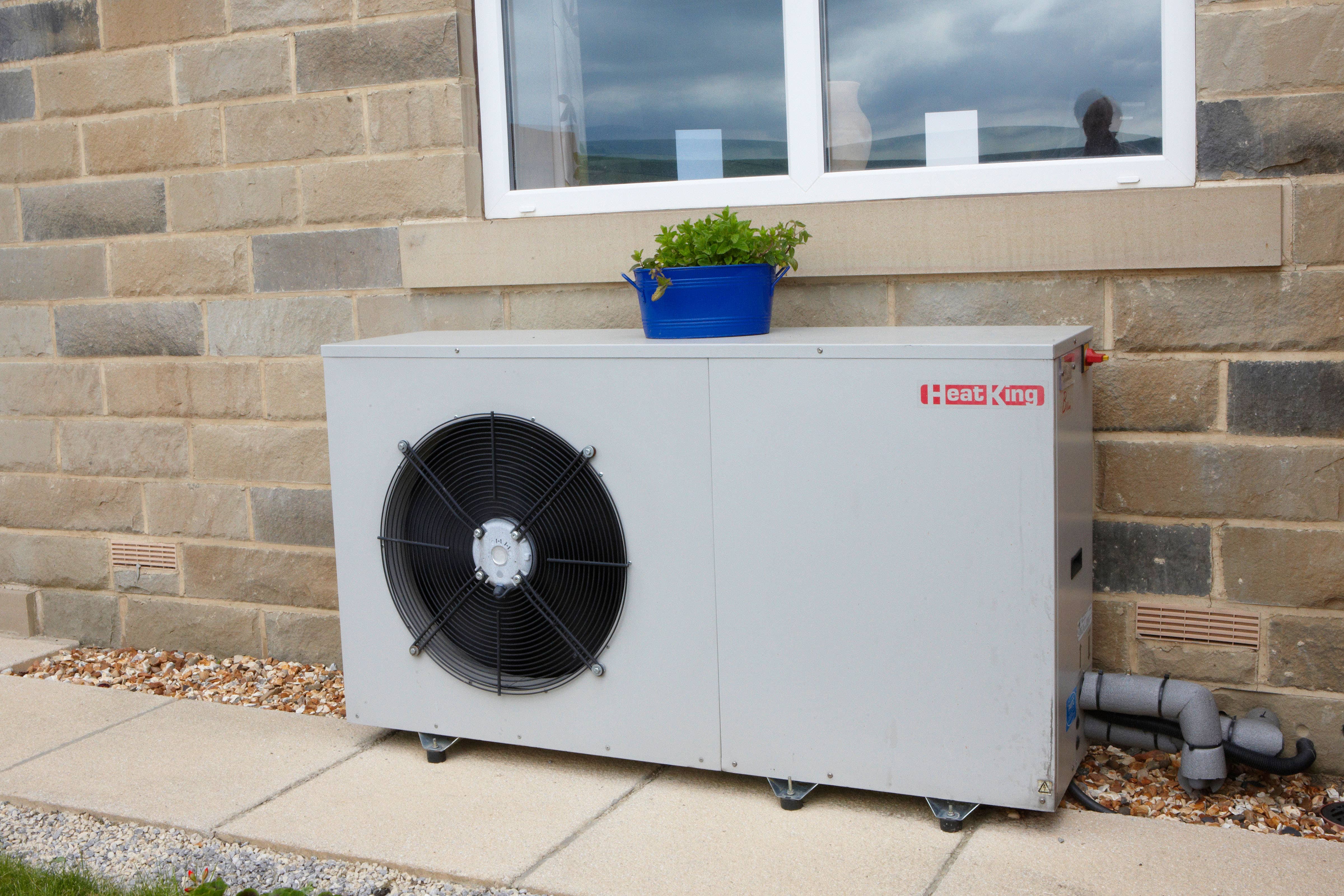Rules to boost heat pump uptake that prompted ‘boiler tax’ delayed for a year
The Government also announced changes that mean families will not have to pay for insulation in order to receive £7,500 heat pump installation grants.

Your support helps us to tell the story
From reproductive rights to climate change to Big Tech, The Independent is on the ground when the story is developing. Whether it's investigating the financials of Elon Musk's pro-Trump PAC or producing our latest documentary, 'The A Word', which shines a light on the American women fighting for reproductive rights, we know how important it is to parse out the facts from the messaging.
At such a critical moment in US history, we need reporters on the ground. Your donation allows us to keep sending journalists to speak to both sides of the story.
The Independent is trusted by Americans across the entire political spectrum. And unlike many other quality news outlets, we choose not to lock Americans out of our reporting and analysis with paywalls. We believe quality journalism should be available to everyone, paid for by those who can afford it.
Your support makes all the difference.Rules requiring boiler companies to boost the number of heat pumps they sell which prompted them to implement a so-called “boiler tax” have been delayed by a year.
Ministers also announced changes to the £7,500 heat pump grants the Government is offering, with households no longer having to install loft and cavity wall insulation in their homes to qualify for the funding.
Officials said the changes to the insulation requirements could save families £2,500 on the cost of installing a heat pump.
Although homes should still be appropriately insulated to save money on bills, the changes would allow householders to spread the costs so they are not hit with one big charge, the Department for Energy Security and Net Zero said.
We’re making heat pumps even cheaper and easier to install
The measures are part of a target to help phase out gas boilers and deliver 600,000 clean electric heat pump installations a year by 2028.
The clean heat market mechanism, which initially required boiler manufacturers to match, or substitute, 4% of their boiler sales with heat pumps or face a £3,000 fine for each missed installation, was due to be introduced on April 1.
Manufacturers have implemented price rises of as much as £120 on a boiler – dubbed a “boiler tax” – which they say is to cover the costs of the potential penalties, although critics say they could make millions from the move.
In light of the price rises, the Energy Security Secretary has called on the Competition and Markets Authority to review the industry, which is dominated by four companies covering 90% of the market, to consider if it is working as well as it should and is delivering the best outcomes for consumers.
Meanwhile, the date for implementing the mechanism has been pushed back to April 2025, with the proportion of boilers that have to be matched by heat pumps due to rise to 6% at that point as planned.
Updates to boiler standards, which have also been announced, will make them more efficient and cheaper to run, the department said.
Energy Security Secretary Claire Coutinho said: “We’ve already supported families by making our Boiler Upgrade Scheme one of the most generous in Europe and now we’re making heat pumps even cheaper and easier to install.
“This is all part of our wider plan to ensure we cut our emissions and make homes more energy-efficient without burdening families with high costs.”
The department said there had been a sustained surge in applications for heat pump grant applications after the level of support was upped from £5,000 to £7,500 last autumn, with numbers up 39% in January compared with the same time last year.
But a huge increase in heat pump installations is needed to meet the target of putting 600,000 into homes by 2028, the Government has been warned.
Jess Ralston, energy analyst at the Energy and Climate Intelligence Unit (ECIU), said Ms Coutinho has “clearly given in to ‘big boiler’ manufacturers” after previously accusing firms of “price gouging”.
“This is another backwards step for the UK’s energy security,” she said. “As long as we rely on gas boilers, we’ll increasingly have to import gas from abroad as the North Sea continues its inevitable decline.
“Clear, stable and long-term policy is the number one thing that investors ask for from leaders. While the wider economy stagnated, the net zero economy grew 9% last year. Delaying this policy is another signal adding potential political risk for investment in the UK.”
Alethea Warrington, senior campaigner at climate charity Possible, said: “The UK’s rate of installation of heat pumps remains the lowest in Europe, not helped by concerted lobbying by gas boiler manufacturers against the introduction of heat pumps. Heat pumps are currently being installed at a rate of only around a ninth of what is needed to hit the Government’s own targets.
“More ambition is needed to get on with the job of getting the UK off volatile, high emissions gas and onto secure, affordable renewable energy and clean heat.”
David Cowdrey, external affairs director at the MCS Foundation, called the decision “extremely disappointing”, adding: “The Clean Heat Market Mechanism is crucial to the rollout of heat pumps, which are the only viable option to decarbonising at scale the 17% of UK emissions that are created by heating our homes.
“The Government needs to immediately set out plans for how it intends to fill the huge gap in heat pump plans that they have just created. We need clear and consistent policy more than anything, and without that the UK’s target of installing 600,000 heat pumps a year by 2028 is in serious jeopardy.”